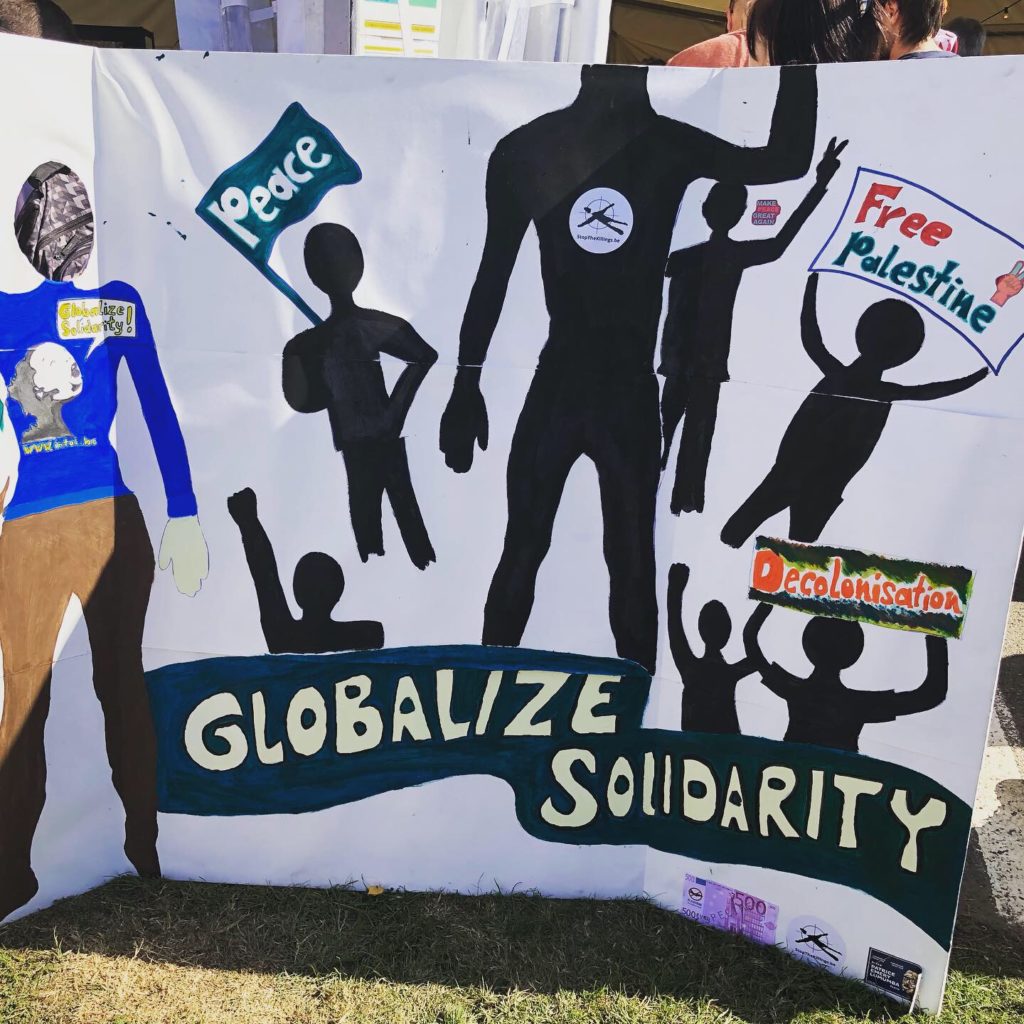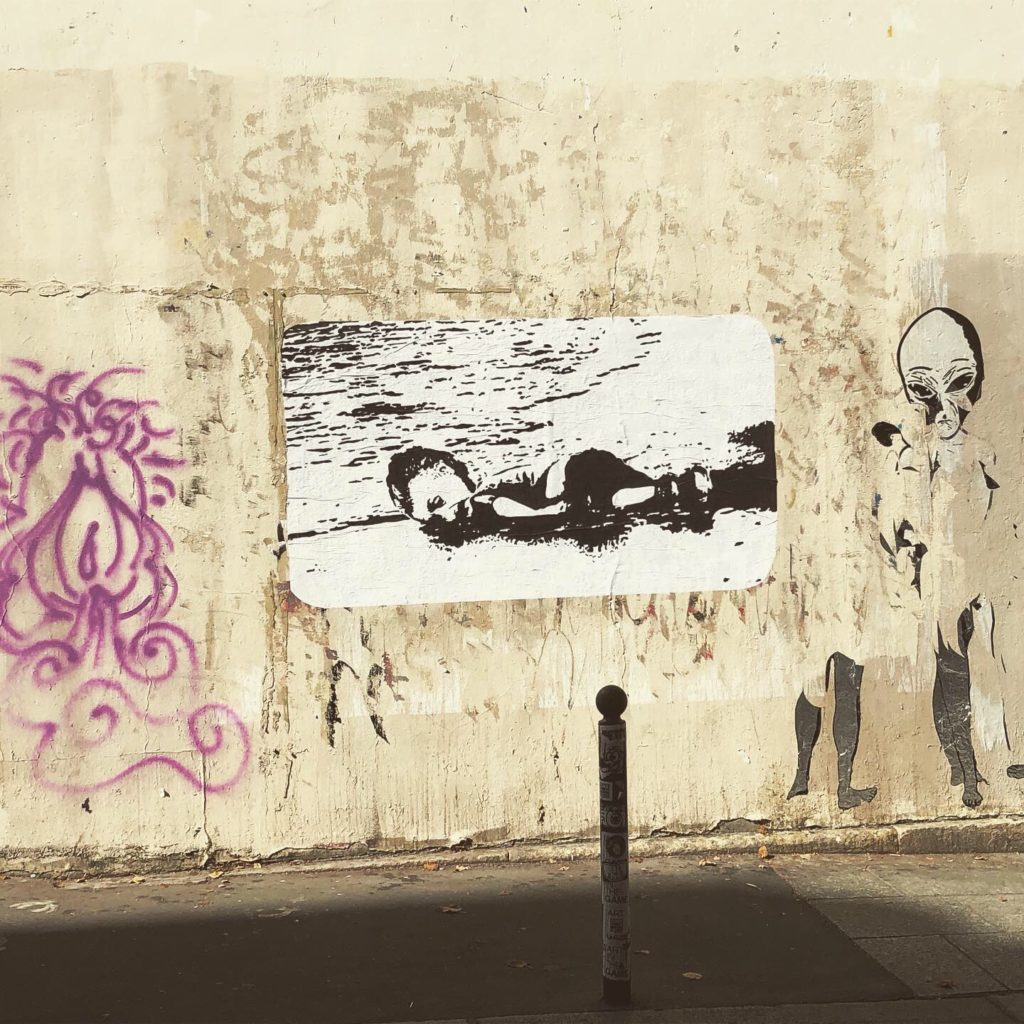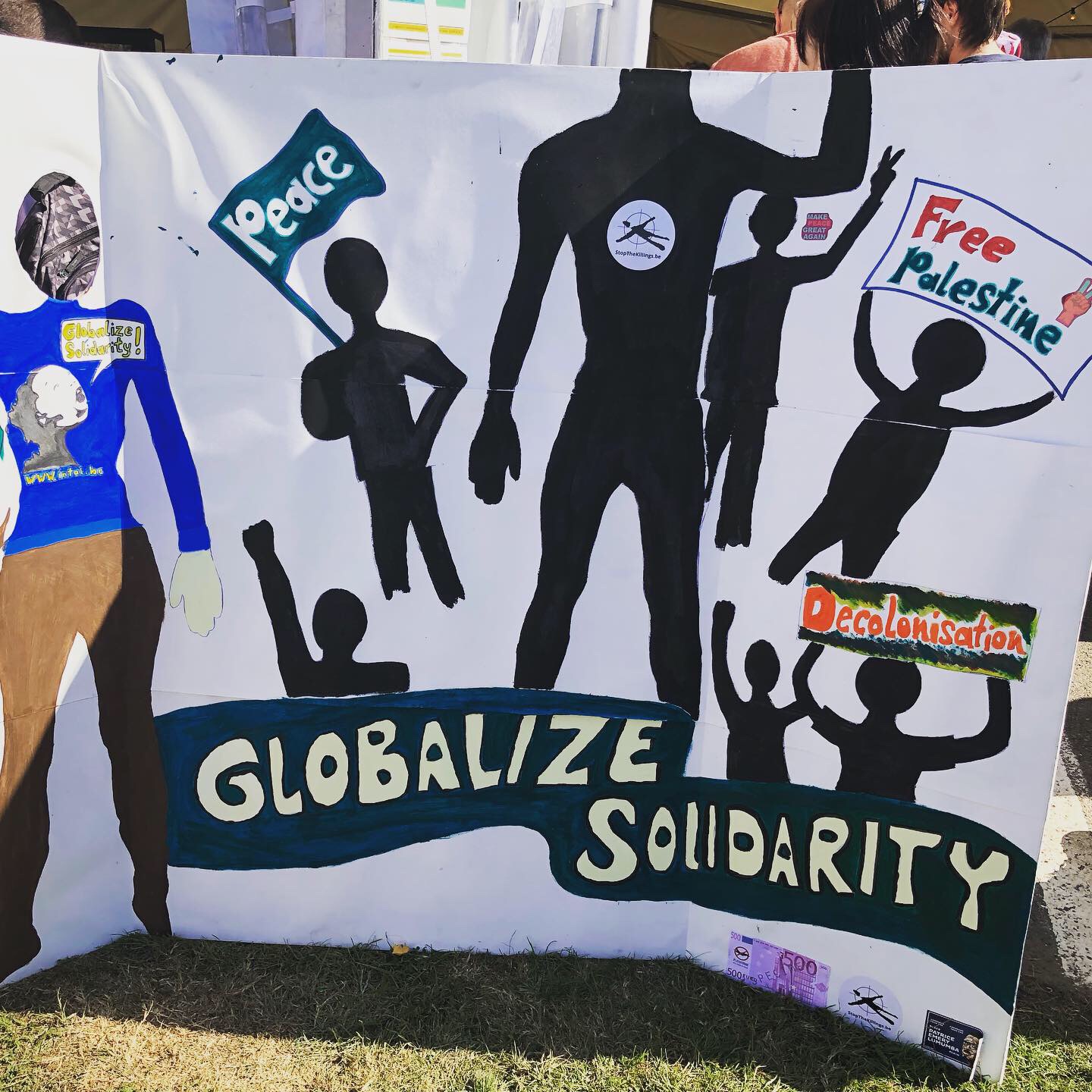by Dora Rebelo
Preamble
In October 2013, while working in remote refugee camps of Northern Ethiopia, I witnessed the impact of the Lampedusa tragedy in a local community of Eritrean asylum seekers. During a period of one week, several mourning ceremonies took place in the refugee camps of May Ayni and Adi Harush, in Tigray region. One thing is to mourn and grieve over a dead body, whose physicality confronts us with the factual loss of a loved one; a very different thing is to mourn and grieve while experiencing an ambivalent loss.
As days went by without any news or communication, relatives deducted that their family members were among the people who drowned in the Mediterranean Sea. Some started to receive phone calls confirming the worst. Hundreds of people dressed in white shared their grief under improvised tents set up to host the camp ceremonies. Priests and imams prayed together guiding their community through religious rituals. The image of the lost bodies at sea and the realization that they might never be recovered added an indescribable heaviness and emotional charge to the funeral ceremonies.
Europe reacted vigorously to the Lampedusa tragedy. Italy and Malta called for more funding to improve the capacity of sea search and rescue operations, calling the situation an ‘emergency’. A funeral ceremony was organized in Italy, burying empty coffins, symbolically, at Piano Gatta cemetery, in Sicily. Operation Mare Nostrum was launched as an immediate response to a perceived ‘emergency’, in late October 2013, funded by the European Union (EU). This operation lasted twelve months, saving thousands of lives but, allegedly due to its ‘high maintenance costs’, in October 2014 Mare Nostrum was stopped. Operation Triton, run by Frontex, was launched in its stead, but with a very different purpose: border control. This change in commitment and policy, marked the beginning of what has become a ‘EU-turn’ in ethical and moral upholding of principles in migrant reception.
The so-called refugee crisis of 2015 that followed, prompted a strong civic engagement, and the emergence of different types of solidarity and activist initiatives, trying to counter the increasingly cruel treatment of migrants and asylum seekers. Civil society’s engagement could have been ignited by a generalized emotional response to the images of helpless refugees, widely disseminated through media coverage, but it has since evolved into more politicized forms of engagement.

During the last 6 years, I have been working closely with individuals and collectives of solidarity that are fighting for asylum seekers and refugees’ rights. As a community psychologist, I worked in Leeds (UK) and in mainland Greece, witnessing how volunteers and activists organized in solidarity actions through the first two years. Later on, during my PhD (2017-2020), I established a collaborative research with refugee associations in Portugal, to look into the role and effects of community-based solidarity practices. Although based in Portugal, I kept following the pathway of people on the move in other EU countries, and the informal support networks they recurred to, along the way. This led me to interview, between 2019 and 2020, a diverse range of individuals that were spontaneously assisting asylum seekers in Sweden, Belgium and France. My patchwork ethnography became thus a portrait of the daily struggles and relational spaces within informal solidarity networks, and how they shape around what I named kinetic systems of solidarity, inspired by the work of Thomas Nail. These informal solidarity networks were non-static communities, with changing patterns of mobility, affectivities and political positionalities, animated by different levels of subversion and transgression, within the wider sociopolitical scape.
A note on motivation and positionality
I initiated my career as a community psychologist, working in peripheral neighborhoods of Lisbon, in what were then called ‘social inclusion’ projects for ‘at-risk youth’. ‘At-risk’ was the designation given to racialized minorities (mainly afrodescendants and Roma people) spatially segregated from urban areas, due to questionable ‘social inclusion’ policies. I was trained in the systemic approach, where we are encouraged to look beyond the ‘pathology’ of the individuals, trying to make sense of wider social influences such as family, community relationships and local contexts. This approach has given me a few tools to explore other sociocultural perspectives, trying to grasp family and community dynamics, gender and class hierarchies, social circumstances – but not so much their significance in the wider sociopolitical scape. Psychology work was not at all politically mindful, in the way I was taught in Portugal. Our curricula did not include the works of Frantz Fanon, or Ignacio Martín-Baró, or even the insights of Paulo Freire, who wrote in Portuguese language.
Working around the globe for about a decade, as a psychologist at first, and then as a consultant for MHPSS community-based and humanitarian projects, I acquired new learnings on social justice, feminism and decolonial thinking. I was a witness to numerous effects of structural violence in the Global South and to the ways through which people are oppressed and instrumentalized by neoliberal injustices. Through a decade of field practice, I myself have been transformed into a mobile subject, travelling for work, engaging with different cultural contexts and organizations in temporary contracts, a situation which allowed me to maintain a certain external observer regard. Reflecting on my own positionality and privilege towards mobility and citizenship, I saw the huge discrepancies between my freedom of movement and that of my interlocutors. While I am entitled to work permits and to a privileged expatriate life around the globe, my interlocutors remain for years undocumented migrants, asylum seekers, internally displaced people, transmigrants and other categories assigned by different host countries.

In addition to these experiences of mobility, I am also an academic migrant (I returned to academia after a decade of field practice), and a disciplinary migrant (from psychology to anthropological research). I became interested in anthropology years ago, due to its inherently subversive characteristics. Intending to carry out a PhD research in a context that I already knew to be deeply influenced by politics, I believed that, in anthropology, I could use my positionality. Despite the possibilities of subversion conferred by my new discipline, the sovereign powers of academia – I discovered in this process – are still quite hegemonic. Not embodying an ‘authentic anthropologist’, and not having any previous publication that could validate my legitimacy as an ‘anthropology wannabe’ my integration in academia was that of a ‘strange object’. Furthermore, in the literature review process, I found that the existing academic research usually stayed at the external side of the border, contemplating ‘the spectacle of the border’, as stated by De Genova, without being impacted by its injustices. In my view, research about mobility cannot avoid taking a stance in these contemporary times, nor should it conceal the effects of witnessing border violence.
Actually, my catalyst for the PhD thesis was my own moral aporia with previous humanitarian work. Humanitarians are known to be confronted with intersubjective processes of moral dissonance, through their direct relationship with suffering others. Considering all these ideas and my previous experiences, I attempted to frame my research within a community-based perspective that could, at the very least, show a counter-narrative to the dominant discourse, presenting the perspectives of people in the field and not shying away from my own vulnerabilities. I knew beforehand that I would be hostage to a series of intrinsic variables, positionality, ethics, intersubjectivities, tensions, affectivities and moral negotiations, in the intersections between my power and privileges associated with nationality, gender, social class, race and age. I presented myself as an engaged researcher, a supportive citizen, and an ally to the collective struggles of people on the move. Being a white woman and a middle-class academic, my participation was partially conditioned by a distance between my social reality and that of my interlocutors. To counteract this distance, I consciously chose to use my citizenship privileges to engage in solidarity actions with people struggling against border injustices. Using informal solidarity in this way helped me to build knowledge alongside my interlocutors, through collective lived experiences, while deconstructing our mutual stereotypes, and defusing some of the anticipated differences. In this sense, I never intended to be neutral, and in the process of the field research I became even more engaged, in view of the urgency to rethink today’s Europe, in a more democratic and cosmopolitan perspective.
Theoretical inspirations
We lived in times of unprecedented mobility, until we were hit by a global pandemic. Our world has been shaped hybrid, fluid and dynamic, and us humans-in-the-world have been busy reinventing new forms of movement, transit and exchange. Movement is a big part of our lives and our mobility in the globe became central to what it means to be human and to be free. Movement and mobility are therefore key concepts to understanding ourselves in the contemporary world. Thomas Nail named the 21st century the century of the migrant, referring to the fast pace of our world, and how way it encourages the incessant movement of people. Social sciences like psychology and anthropology should therefore include mobility as a decisive factor in the analysis of our current circumstances in the planet. Even though mobility is mainly associated with positive meanings, including freedom, creativity, cosmopolitanism and modernity; migrants from the Global South keep being connotated with marginality, subversion, transgression or even crime. In these negative expressions of movement, migrants have been perceived as an opposition to ‘order’, as a threat, as something that must be controlled, for it may cause chaos, as Liisa Malkki stated. The year of 2015 was crucial in asylum policies and bordermaking. Expecting the so-called refugee crisis to escalate ‘out of control’, Europe has contracted inside its borders, and expanded its externalization measures; harshening the treatment of people crossing the Aegean and the Mediterranean Sea.

Ordinary citizens and activists put forward various actions of solidarity and protest against the perceived injustices. For the most part, the solidarians I met during my fieldwork were transformed by what researchers called ‘the event of the encounter’, as Deleixhe called it. Some of the people and actions that I will describe were motivated by moral positionalities (e.g. ‘lives are more important than borders’) and intentional resistance to political orientations taken by EU Governments. According to Isin the perception of structural inequalities intensifies the flow of struggles and social movements, producing new affinities and identities between people, as well as new hostilities and animosities. Isin understands these acts of citizenship on a spectrum ranging from naïve solidarity (generosity, hospitality, positive affectivity) to political antagonism (resistance, competition, political combat) or even alienation. He considers that all acts of citizenship produce actors/agents who respond to injustice. That is, the activist is one who is engaged with a situation that causes him discomfort and motivation to try to actively break with an injustice. Finally, he proposes a third principle associated with acts of citizenship: the separation of legality; that is, acts of citizenship may involve civil disobedience.
Rea and collaborators argue that this perspective of Isin may be reductive to explain the post-2015 citizen movements. The mobilization of a considerable number of solidarians was a new phenomenon of collective action, different from the work developed so far by traditional activists (associations of sans-papiers, trade unionists, no borders activists, anarchists, etc.). To examine the ethical and moral negotiations behind this new arrangement, in its complexity and intersubjectivity, we need to examine its ‘grey areas’. The informal solidarity systems that I observed were located spatially and temporally, arranged around the needs and injustices faced by people on the move. In order to understand its patterns of movement, rhythms of flow and interruptions, we will have to understand the ongoing dialogue between these kynetic systems of solidarity and the restrictions imposed by the borders. Borders can be understood as geographical, historical, social and emotional spaces which are mobile and transformable, and have distinct, inter-relational meanings, made of belongings and exclusions. I propose that informal solidarity with people on the move configurates, then, a fluid space of association, which simultaneously transforms people with shared lived experiences and collaborative relationships, acting together against border violence.
Impacts from the field
There are a lot of common aspects that link the different actors and networks that were a part of my patchwork ethnography. The relationships established between solidarians and asylum seekers on the move were of course nuanced by intersubjectivities such as values, expectations, political stances and affectivities. The harshening of the European border regime forced asylum seekers to endure precarious living circumstances, and limited ability to use their agency and regain control over their lives. These solidarity networks offered an interstitial space of safety and resistance, smoothing the clashes with the borders. Solidarians’ actions were in turn affected and transformed by the encounters and engagements with asylum seekers on the move, whom thus contributed to expand solidarian’s social scapes and actuated citizenship. Deepening these informal solidarity connections triggered a lot of emotions and affectivities that shaped the actions and relationships that I established in the field. These emotions were then intersected with the moral and ethical commitments of a struggle that I perceived to be urgent, fair, and ‘bigger’ than myself. The shared experiences and the emotional bonds that I lived in the field, inspired a certain cosmopolitan imagination, and the wish to create alternative forms of care and hospitality.
Today I am still working locally, in my community, trying to improve my capacity, my network and hospitality reach. I believe this happens because these experiences inevitably painted a new picture of ‘the local’, as an antidote for the injustices of the world ‘out there’. The fieldwork also challenged me to attempt some level of change ‘from below’, as a response to the immutable ‘upper’ level, of nation-state’s policies. I am, for this reason, engaged in a sort of ‘politics by other means’, or ‘micropolitics’, as stated by Maurizio Artero. Informal solidarity proved to be a ‘different way’, an ‘inventive’ alternative of social relations and political possibilities, giving rise to new ideas of doing and being together, beyond the usual parameters.
The journey of my fieldwork taught me that a lot of people in Europe are invested in the same struggle, for fairer borders and migrant justice. This struggle intertwines with others such as the anti-racist movements, the feminist and queer movements, or the environmental justice groups. Only applying intersectionality to our endeavors, will we be able to collectively address the excesses of neoliberalism. These promising spaces of resistance, which do not conform to the ‘national order of things’ form a chain of small, fragmented communities that search for a different common solution. Not expecting small solidarity movements to change the world, I do believe they can inspire shared responsibility and more awareness of our systemic challenges.
About the Author

Dora Rebelo is a systemic psychologist, MHPSS consultant, and recently obtained a PhD in Anthropology. Since 2015, she has been focusing on solidarity networks and collaborative research with refugees and asylum seekers. She is now an associated researcher at CRIA/ISCTE-IUL, a member of an association of Public Anthropology (Wamae), a member of the activist network Europe Must Act and its Lisbon city chapter (Lisbon Must Act), an activist-researcher for migrant justice, and a volunteer in Portuguese refugee associations UREP and Forum Refugio.

Leave a Reply